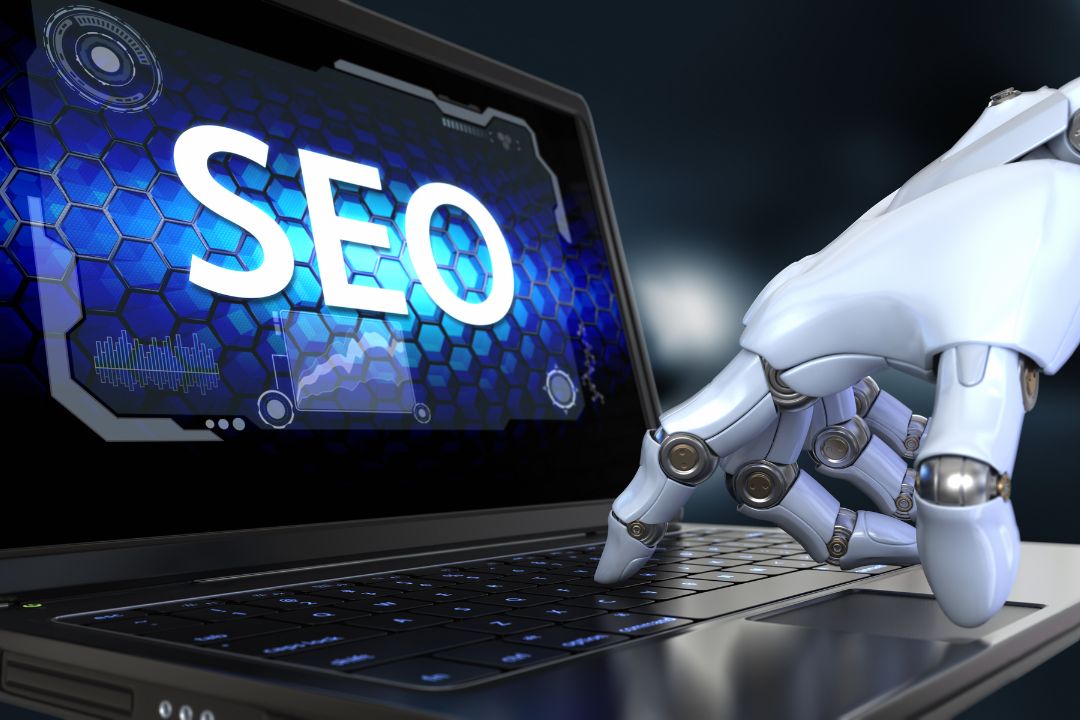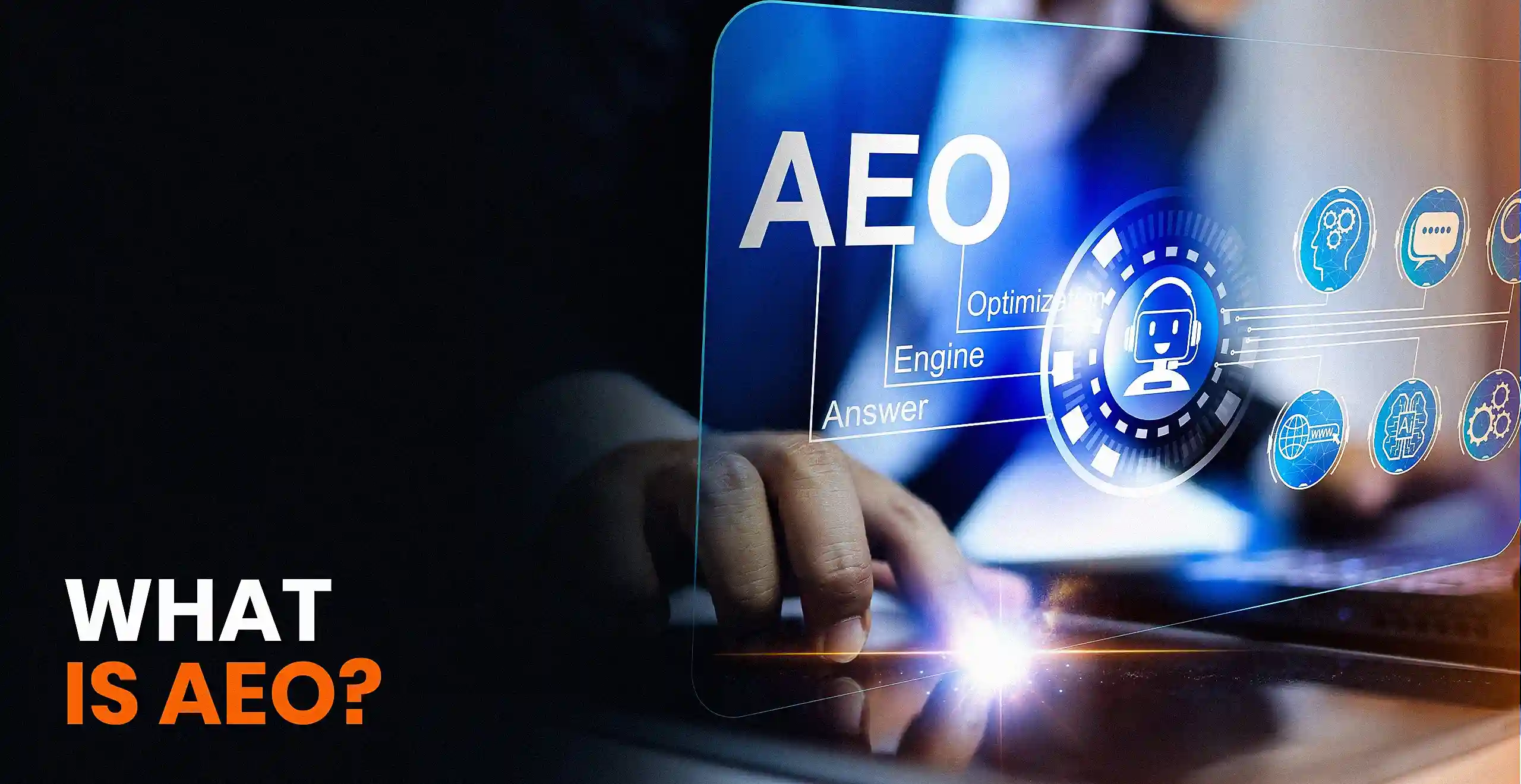The digital world is going through a major change. AI search optimisation has become the new frontier, replacing traditional strategies focused on ranking with methods designed for conversational AI platforms like Google SGE, Bing AI, and ChatGPT. At the core of this evolution is Answer Engine Optimisation (AEO)—a methodology that ensures content appears accurately within AI-generated responses rather than simply ranking on search engine results pages.
Businesses in various industries are adapting their SEO strategies to stay visible in this AI-driven environment. The shift from keyword-focused tactics to semantic relevance and structured content formatting represents more than just a small change; it’s a complete rethinking of how brands connect with searchers.
This review looks at real-life experiences from businesses and AI SEO implementations, uncovering what works, what challenges arise, and why early adopters are already seeing measurable returns. Understanding these AEO agency reviews offers valuable insights for any organisation considering the shift to AI search optimisation.
What Is AI Search Optimisation and How Has It Changed SEO?
AI search optimisation focuses on ensuring content appears in answers generated by artificial intelligence systems, not just in traditional search result listings. Unlike traditional SEO vs AI SEO, where the goal was securing high positions on search engine results pages, this new approach prioritises being cited as a source within AI-generated responses.
Platforms like Google’s Search Generative Experience (SGE), Bing AI, and ChatGPT have fundamentally altered how users find information. These systems analyse vast amounts of data to synthesise direct answers, often eliminating the need for users to click through multiple websites. When someone asks a question, they receive an immediate, conversational response rather than a list of blue links.
The shift centres on direct answers rather than rankings. Traditional SEO metrics like “position one” lose relevance when AI tools provide comprehensive responses at the top of the search interface. Businesses must now optimise for:
- Being cited as an authoritative source within AI responses
- Providing contextually rich content that AI systems can extract and synthesise
- Structuring information in formats that AI algorithms recognise and trust
This transformation means websites can gain visibility without users ever visiting them directly, whilst simultaneously risking complete invisibility if their content isn’t optimised for AI interpretation. The emphasis has moved from attracting clicks to becoming the trusted source AI platforms reference when answering queries.
Why Are Businesses Prioritising Answer Engine Optimisation (AEO)?
Businesses are shifting focus to AEO because AI-powered search platforms now control how millions of users discover information. When ChatGPT, Google SGE, or Bing AI generates an answer, only the most authoritative, well-structured content gets cited—making the importance of AEO critical for maintaining competitive visibility.
The business benefits AEO delivers extend across multiple touchpoints:
- Accurate content presentation: AI systems extract and display information exactly as businesses intend, reducing misrepresentation risks
- Voice search readiness: Conversational queries require natural language optimisation that AEO provides
- Zero-click scenarios: Even when users don’t visit websites, brand mentions in AI responses build recognition and trust
AI-driven SEO strategies centred on AEO strengthen brand authority by positioning companies as primary information sources. When AI platforms consistently reference your content, potential customers perceive your business as an industry leader before they ever visit your site.
Lead generation improves because AEO targets high-intent users seeking specific solutions. Someone asking an AI assistant “which CRM integrates with accounting software for small businesses” represents a qualified prospect. Businesses optimised for these precise queries capture attention at the exact moment purchase decisions form.
The shift reflects a fundamental change: visibility now depends on being the answer AI systems trust, not just ranking on page one of traditional search results.
What Strategies Are Agencies Using to Help Businesses Adapt to AI Search?
Agencies are using a combination of structured content formatting and advanced schema markup techniques to ensure that AI systems can accurately understand and reference business information. This includes implementing specific types of schema such as FAQ schema, knowledge graph data, and detailed product/service markup. These measures are designed to assist AI platforms in extracting precise answers for user queries.
Shifting Focus: From Keywords to Meaning
The primary strategy has shifted from focusing solely on keyword usage to emphasising semantic relevance and contextual depth. Content creators now need to go beyond simply using specific phrases and instead address the underlying reasons and processes behind search queries. This requires crafting comprehensive and naturally flowing content that not only answers the main question but also tackles related queries within a single resource. Such an approach is more likely to be recognised by AI systems as authoritative sources.
The Role of LLM SEO Techniques
At the core of modern AEO (AI Optimisation) strategies are LLM SEO techniques (Large Language Model Search Engine Optimisation). These methods are specifically designed to align with how large language models process information. Some key techniques include:
- Optimising content structure
- Creating clear hierarchies
- Embedding contextual relationships
- Developing comprehensive topic clusters
By implementing these techniques, agencies aim to establish domain expertise and improve the chances of being cited in AI-generated responses.
Positive Outcomes for Businesses
Agencies have reported positive outcomes for businesses that have adopted these AEO strategies. Specifically, they have observed an increase in citation rates within AI-generated responses. This is a promising sign that the focus on semantic SEO is effective in aligning content with conversational query patterns.
As a result, businesses can expect to see improvements in their visibility across various AI-powered platforms such as voice search results and answer boxes.
However, it’s important to note that technical implementation alone is not sufficient. Content quality plays a crucial role in creating assets that AI platforms trust and reference. Therefore, agencies emphasise the need for continuous improvement in both technical aspects and content creation processes.
What Results Are Businesses Seeing After Implementing AEO?
Businesses typically observe measurable AEO results within 6 to 12 weeks of implementation, though the exact timeline varies based on domain authority, content quality, and technical readiness. This relatively quick turnaround makes AI search optimization an attractive investment for companies seeking faster returns compared to traditional SEO campaigns.
1. Visibility Gains in AI-Generated Answers
Visibility gains in AI-generated answers represent the most immediate impact. Companies report their content appearing as direct citations in ChatGPT responses, Google SGE summaries, and Bing AI answers—placements that drive increased AI traffic from users seeking authoritative information. These citations establish brand credibility within conversational search interfaces where traditional blue links hold less prominence.
2. Improved Quality of Traffic
The quality of traffic shows marked improvement alongside volume increases. Businesses experience:
- Higher engagement rates from users arriving through AI-powered searches
- Extended session durations as visitors find precisely the information they sought
- Improved conversion rates from high-intent queries answered directly by AI systems
3. Positive Impact on Revenue Metrics
Revenue metrics reflect these engagement improvements. Multiple agencies document clients achieving 30-50% growth in organic enquiries within three months of AEO adoption. E-commerce businesses report particular success, with product information optimized for AI search generating qualified leads that convert at rates exceeding traditional organic traffic sources.
4. Sustained Momentum Through Compounding Citations
The compounding nature of AI citations creates sustained momentum. Each successful placement in AI-generated responses strengthens domain authority, leading to increased visibility across multiple AI platforms simultaneously.

Which Industries Are Benefiting Most From the Shift to AI Search Optimisation?
Retail, healthcare, and e-commerce lead the pack in extracting value from AEO strategies, with businesses reporting dramatic improvements in how AI systems surface their information. These industries benefiting AEO share common characteristics: high search volumes, complex customer questions, and competitive landscapes where visibility in AI-generated answers creates immediate commercial advantage.
Retail
Retail AI SEO implementations focus on product information, sizing guides, and comparison queries that AI platforms frequently answer. Fashion retailers optimise for questions like “best sustainable clothing brands” or “how to style oversized blazers,” ensuring their expertise appears in conversational search results. E-commerce businesses structure product data with advanced schema markup, making their offerings more likely to be cited when AI engines respond to shopping queries.
Healthcare
Healthcare AI search impact proves particularly significant, as patients increasingly ask diagnostic and treatment questions through AI interfaces. Medical practices, pharmaceutical companies, and wellness brands optimise content around symptoms, procedures, and preventive care topics. Educational institutions leverage AEO to appear in career advice, course selection, and admissions queries.
Hospitality and B2B services
Hospitality and B2B services gain competitive edges by answering location-specific questions and complex service comparisons. Hotels optimise for “family-friendly resorts near [location]” whilst B2B companies structure content around “how to choose [service type]” queries that AI platforms commonly address.
See Also : AEO Agency Meaning What Does It Stand For and Why It’s the Future of Digital Marketing
What Challenges Do Businesses Face When Transitioning to AI Search Optimization?
Businesses encounter significant obstacles when shifting to AEO, with technical infrastructure and content quality emerging as primary barriers. Many organisations lack the structured data implementation and schema markup expertise required for AI platforms to properly interpret their content.
1. Technical readiness gaps
These include outdated content management systems, insufficient knowledge graph integration, and poorly formatted FAQ sections. Companies accustomed to traditional keyword-focused approaches struggle to restructure content for semantic relevance and contextual depth that AI systems demand.
2. The risks of delaying this transition are substantial:
- Traffic erosion as AI-generated answers bypass traditional website visits
- Credibility loss when competitors appear in AI citations whilst your brand remains invisible
- Revenue decline from reduced organic enquiries and conversions
3. Continuous evolution of AI algorithms
AI algorithms evolve continuously, requiring constant monitoring and adaptation. What works today may become ineffective within months as platforms like Google SGE and ChatGPT refine their answer-generation models. Businesses report frustration with the moving target of optimisation requirements.
4. Content quality presents another hurdle
AI systems prioritise authoritative, well-structured information over thin content. Companies must invest in comprehensive answers that address user intent rather than gaming algorithms with keyword stuffing—a fundamental shift in content creation philosophy that many teams find challenging to implement effectively.
How Do Agencies Describe the Future Outlook for Businesses Embracing AEO?
What does the future hold for businesses investing in answer engine optimisation? Agencies consistently report that search behaviour will continue evolving toward conversational AI interfaces, making early adoption of AEO practices essential for maintaining competitive visibility.
The future of AEO centres on platforms that prioritise natural language understanding over traditional keyword matching. Agencies observe that users increasingly expect immediate, contextually relevant answers from AI systems rather than browsing multiple web pages. Businesses optimising solely for conventional search engines risk becoming invisible in these emerging environments.
Evolving search trends indicate a fundamental shift in how people access information:
- Voice-activated queries through smart devices demand conversational content structures
- AI chatbots and virtual assistants serve as primary information gateways
- Zero-click results dominate user experiences across multiple platforms
Agencies emphasise that conversational interfaces optimisation represents the new baseline for digital presence. Companies investing in semantic content depth, structured data, and AI-friendly formatting position themselves to capture high-intent traffic as these platforms mature.
The long-term advantages extend beyond visibility. Businesses that establish authority within AI answer systems build trust with users who receive their information through trusted AI intermediaries. This creates compounding benefits as algorithms increasingly favour sources with proven accuracy and relevance in AI-generated responses.
Agencies describe this transition not as optional but as critical infrastructure for sustained online success. The question shifts from whether to adopt AEO to how quickly businesses can implement these strategies before competitors dominate AI-powered search results.

Conclusion
The evidence from AEO Agency Reviews What Businesses Are Saying About the Shift to AI Search Optimisation reveals a clear message: waiting is no longer an option. Businesses that delay their call-to-action AEO adoption risk becoming invisible in AI-powered search environments where competitors are already capturing high-intent traffic and citations.
Agency partnership benefits extend beyond technical implementation—they provide strategic guidance through rapidly evolving AI algorithms, ensuring your content maintains visibility across conversational search platforms. The businesses experiencing measurable growth share one common trait: they acted early.
Your next step determines whether you lead or lag in AI search visibility. Partner with an AEO-focused agency today to audit your current content, implement structured optimization, and position your brand where future customers are searching. The shift to AI search optimization isn’t coming—it’s here. Start your AEO transformation now to secure sustained online success and protect your market share from competitors already reaping the rewards of AI-driven SEO strategies.
FAQs About AEO Agency Reviews
AEO is the process of optimising content so it appears in AI-generated answers on platforms like Google SGE, Bing AI, and ChatGPT.
2. How does AEO differ from traditional SEO?
Unlike SEO, which focuses on rankings, AEO targets inclusion within AI-driven, conversational search responses.
3. Why is AEO important for businesses today?
Because AI platforms now control search visibility, AEO ensures your content is cited as a trusted source in AI answers.
4. What industries benefit most from AEO?
E-commerce, healthcare, and B2B services gain the most visibility from AEO strategies.
5. How long does it take to see AEO results?
Most businesses notice measurable improvements within 6 to 12 weeks of implementation.
6. What are common challenges in AI search optimisation?
The main challenges include technical setup, structured data implementation, and maintaining high-quality content.
7. Can AEO improve brand authority?
Yes, frequent citations in AI answers boost brand credibility and position your business as an industry leader.
8. Is AEO suitable for small businesses?
Absolutely. Small businesses can use AEO to compete with larger brands by optimising content for niche queries.
9. How can I get started with AEO?
Partner with an experienced AEO agency to audit your content, add structured data, and align it with AI search algorithms.








